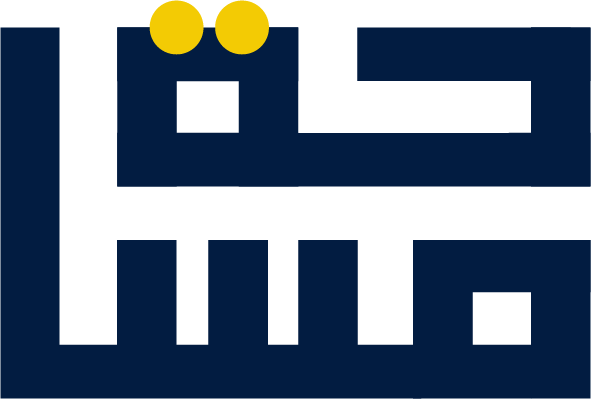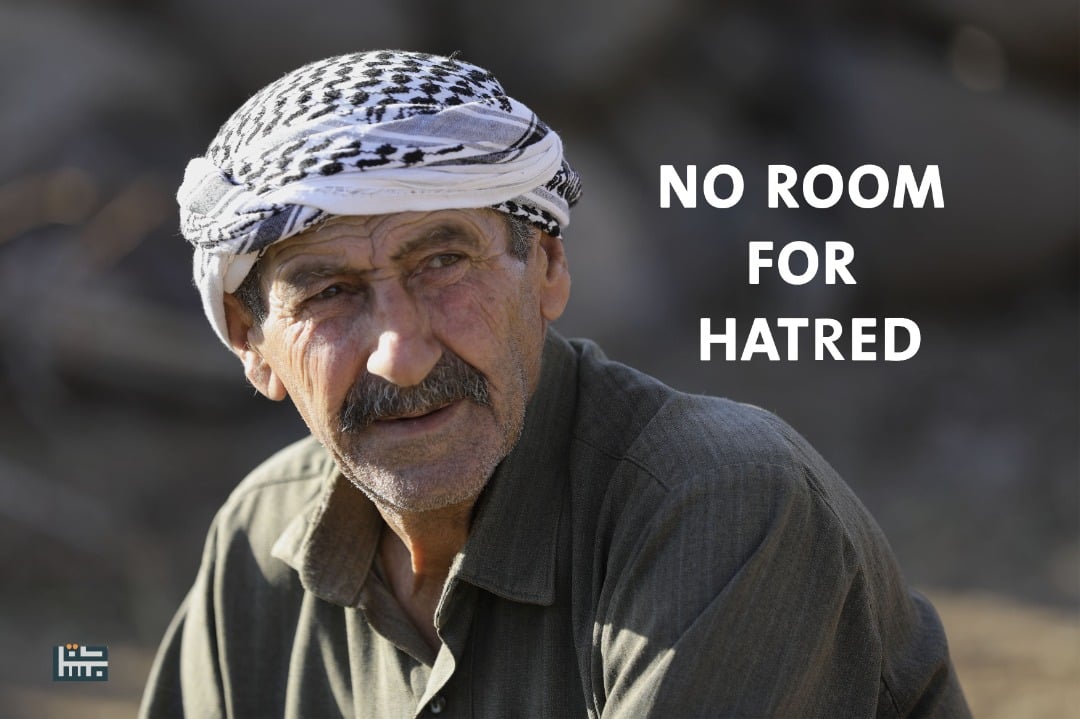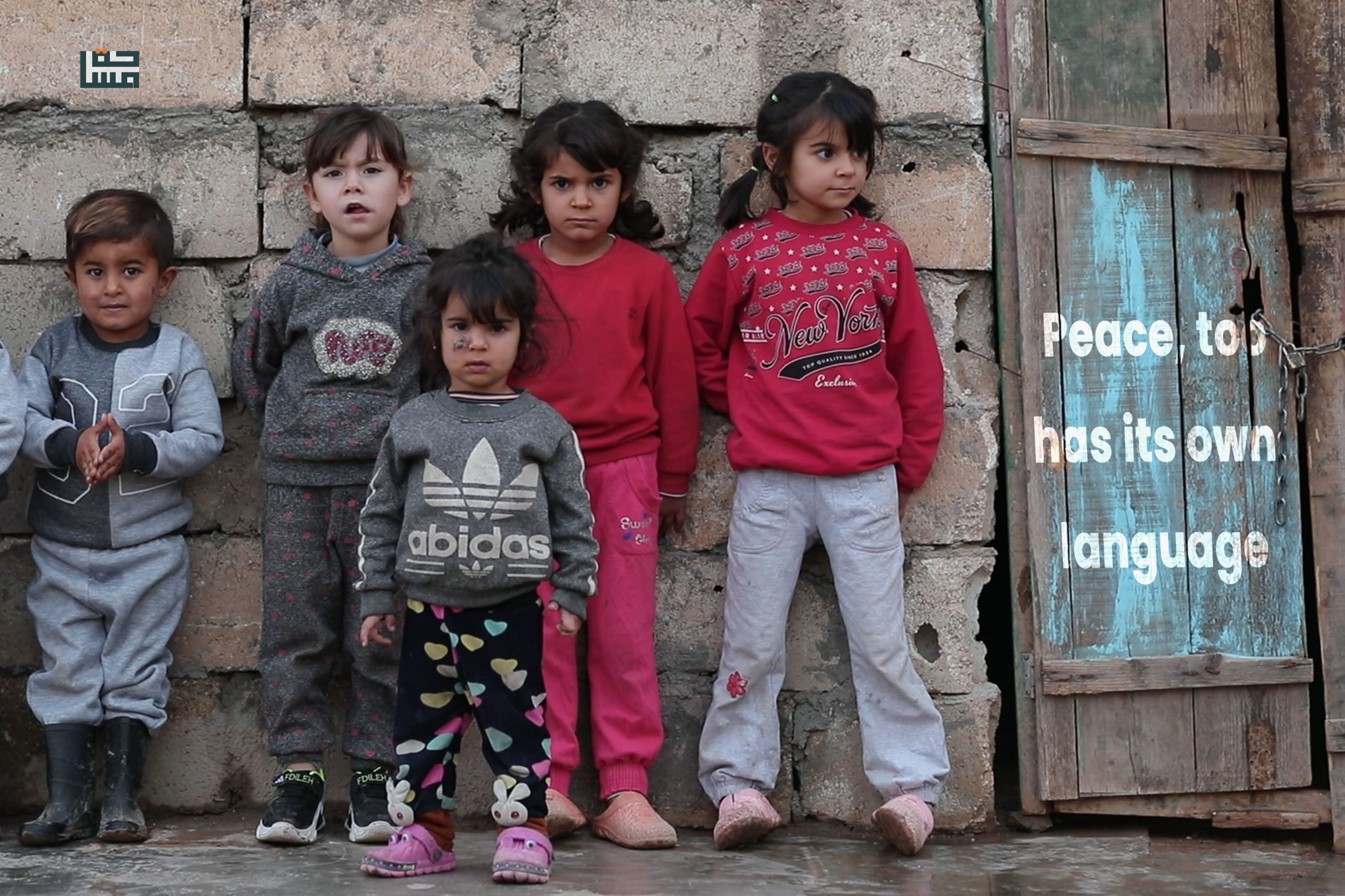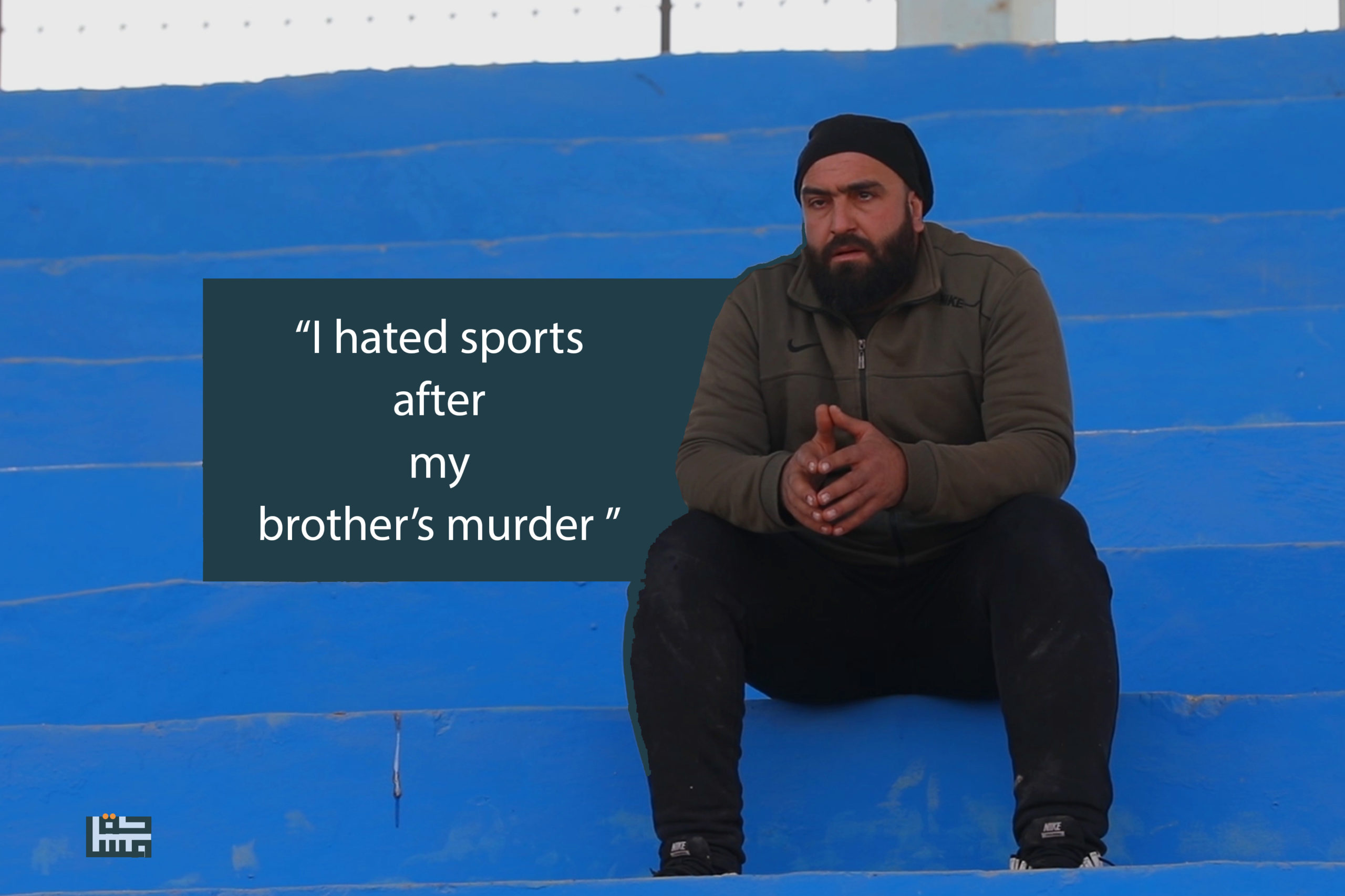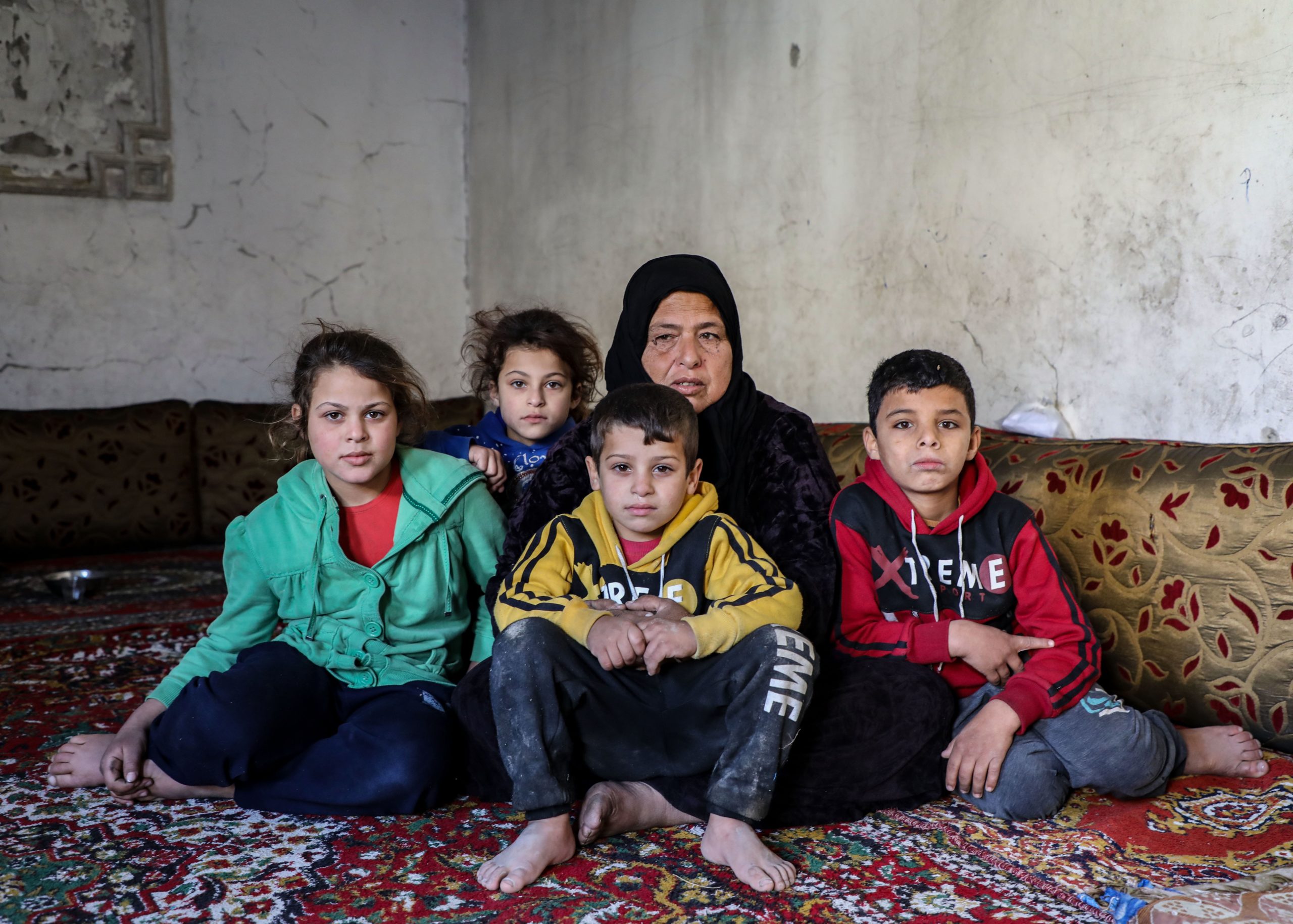The Difficult Road to Awareness
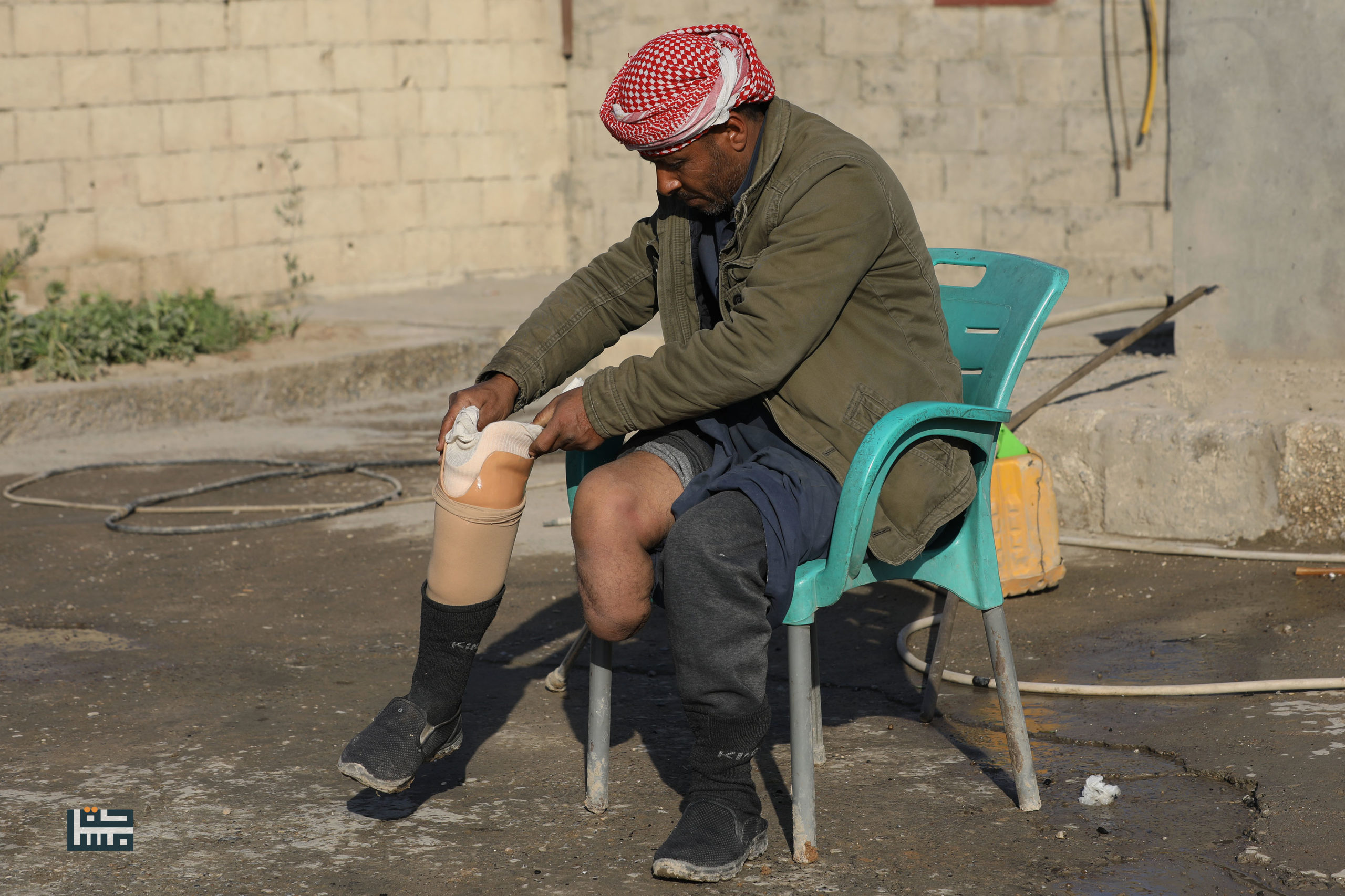
Story by: Akram Saleh
The wheel of life does not stop; disability, limb amputation and arrest, all these did not weaken the resolve of Khaled and his brother, Salah, nor did they stand in the way of their insistence to complete their journey and achieving what they pursued. There is a space in life for both of them to accomplish what they wish, after years of darkness, it is only hope that gives life a meaning.
The Ruins
After the liberation of Raqqa and the expulsion of ISIS group from the region, the people hoped to return safely to their homes. Like other residents of the city, Khaled rushed to clean the alleys of the neighborhood with his neighbors by removing the rubble and traces of destruction.
Night falls on the city and the work is not finished yet. Khaled and his companions start a fire in the middle of the street to warm themselves and to see what remains to complete. All the people of the neighborhood are gathered around the fire, Khaled and his friend go out to collect some firewood from among the ruins, little did he know that something will cost a part of his body; a mine exploded as Khaled and his friend were walking. Khaled’s limb was amputated, his other leg was broken, and his friend also lost a limb. They were taken to the hospital and stayed there for a month and a half for treatment, until Khaled was given a limb prosthesis that enabled him to walk again.
Declaration of Apostasy Against the People
ISIS lost the battle, and the balance inside the city altered; the ISIS was no longer capable of confrontation. Many of its members were killed, and those who remained, intended to take revenge on the people of Raqqa and then escape the city. After their defeat, ISIS declared all the people to be ‘apostates’, accusing them of ‘betraying the organization and failing to support it in the battle’ to preserve the “capital of the caliphate.” ISIS’ revenge was to plant mines at every point that the organization had lost. “We were surprised by the large number of IEDs. They were planted everywhere, in the streets, in the houses, in the cars, in the vacant lots, and even among the luggage,” Khaled says.
Life Goes On
The limb prosthesis offered a glimmer of hope for Khaled and opened the path for him to return to life. He owned a piece of land on the outskirts of the city, which helped him manage his difficult life. So, he opened a car wash, and his children helped him by working there. This work provided him with a source of income to secure the livelihood of his family. Near the car wash, Khaled also created a small garden and planted different flowers. Khaled used to spend most of his time there, and those flowers meant a spark of new hope for him; roses grow and life blossoms.
“I am not alone, there are many like me, I am not the only victim. We have to keep going, the darkness is going away and life goes on,” Khaled says.
Salah’s Story
Salah is Khaled’s younger brother, and he works in the field of awareness within the civil society. ISIS arrested him several times in Raqqa; his last arrest was nearly about to end with his execution. In 2017, during the battle to cleanse Raqqa from ISIS, the organization was in a state of military defeat, therefore, it resorted to a state of public mobilization and called on the people to support it in the fight. Through this call for mobilization, ISIS targeted children, as it intensified its efforts to prepare and train “Inghimasis”, and use children for suicide attacks. “Inghimasi”, in the jihadi terminology, is a person who carries out a suicide operation for the benefit of the group. The people wished for the defeat of ISIS, the extremist organization had no other way than to exploit and influence children; it succeeded in this to some extent, through tempting the children with money and weapons, and the promotion of jihad.
Salah and some of his close friends began working to disprove these ideas, as they tried to educate children by encouraging them to go to school and keeping them away from weapons. Out of fear from the ISIS security apparatus, all this activity was done in secret. About that, Salah says: “ISIS used to call children into mosques under the pretext of providing religious lessons, but the effects of those lessons became public. Children were becoming the victims of jihadist ideas.”
The second accusation against Salah was media activity; ISIS was accusing him of sending pictures and news to external media entities, and preparing reports on the latest developments in the battle. However, the truth was that he was only posting about the news through an anonymous Facebook account. He was also preoccupied with satirical writings about the course of life in Raqqa under ISIS control.
Salah’s Abduction
A patrol of eight masked ISIS security men headed towards Salah’s shop and took him and one of his friends to one of ISIS headquarters. The ISIS patrol also confiscated Salah’s phone and personal computer. The first day of the arrest passed with Salah being interrogated about his job, and the reason for having a computer in his shop. The detention lasted about fifty days, during which Salah and his friend were constantly moved between several ISIS prisons. Charges were brought against him throughout his detention; he was threatened with death as a punishment for those charges. ISIS was also forcing him and other prisoners to watch their video releases, which included horrific scenes of executions carried out by ISIS in the city’s public squares.
Ten days after the arrest, the interrogation sessions began. Salah realized that ISIS had found out about his awareness activities for children. The ISIS interrogator accused Salah of ‘negligence and discouragement’ by working to undermine the organization’s activities aimed at recruiting children in its ranks. Accordingly, Salah was accused of apostasy, ISIS’ punishment for this charge was death.
The ‘Apostate’ Salah
After the interrogation sessions were finished, Salah was brought before an ISIS judge, who was nicknamed Abu Muhammad al-Iraqi. Salah was accused of apostasy and sentenced to death, after which he was transferred to a secret solitary prison, which was an underground tunnel. After the trial, Salah was relocated to another prison within the city, and was placed in a cell that was called the “murder ward”, a special division in which all those sentenced to death were kept. Salah was somewhat fortunate; he filed an appeal, and was taken to a closed Shariah camp where he underwent 25 days of Shariah courses. Throughout this period, the battle was going on and the city was almost empty; Salah lost contact with his family.
The battles intensified, and the outskirts of the city and its entrances fell under the control of the Syrian Democratic Forces (SDF), and the process of surrounding ISIS began. ISIS lost control of some prisons, including the prison where Salah was being kept. The prison guards left their headquarters and fled, and told the detainees that they would complete their Shariah course elsewhere. Salah managed to escape from prison and began searching for his family. Before escaping, he found a “written commitment” document that he was forced to sign while blindfolded. The commitment paper included the following: “It is forbidden to publish news and use Facebook, and if we find out that you are using it, we will kill you, even if we are outside the city.”
Salah returned home and found a note that his family had left for him, guiding him to their whereabouts. Salah rushed to that place and evacuated his family out of the city. Salah’s family did not return until the SDF had completed its full control of Raqqa and its countryside.
Fulfilling His ‘Prophecy’
After Raqqa was fully liberated from ISIS, civil society organizations immediately operated in the area, and stabilization and reconstruction support programs began. Salah was one of the returnees to the city, he returned to complete the same ‘prophecy’ that he was arrested for spreading it; awareness.
